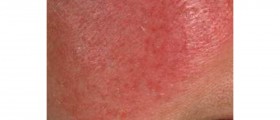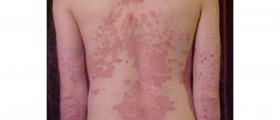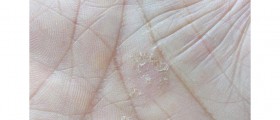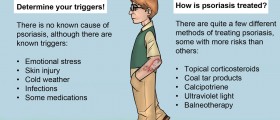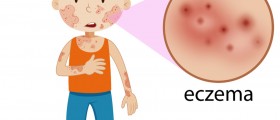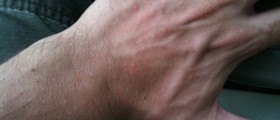Diagnosed with psoriasis rosacea one month ago and it is still spreading out all over my body. So far it seems like my hands and my feet and my face are not affected although it is in my hair and on my neck. My doctor had a follow-up appointment with me and he is scheduling me with a dermatologist but they haven't called yet.
Loading...
Hello, guest.
These conditions can be challenging to manage, especially when they're spreading and affecting multiple areas of your body. Here are some general tips and information that might be helpful while you wait for your appointment with the dermatologist:
-
Understanding Psoriasis and Rosacea:
- Psoriasis is a chronic autoimmune condition that results in the rapid buildup of skin cells. This buildup leads to scaling on the skin’s surface. It can be itchy, painful, and can sometimes lead to psoriatic arthritis.
- Rosacea is a chronic skin condition that typically affects the face and can cause redness, swelling, and acne-like breakouts.
-
Managing Symptoms:
- Skincare Routine: Use mild, non-irritating skincare products. Avoiding harsh soaps, lotions with fragrance, and alcohol-based products can help prevent further irritation.
- Moisturize Regularly: Keeping your skin moisturized can help reduce dryness, itching, and scaling.
- Sun Protection: Protect your skin from excessive sun exposure, as UV rays can exacerbate both conditions. Use a broad-spectrum sunscreen with an SPF of 30 or higher.
- Stress Management: Stress is a known trigger for both psoriasis and rosacea. Techniques such as mindfulness, meditation, and regular exercise can help manage stress levels.
- Avoid Triggers: Identify and avoid personal triggers, which can vary widely but may include certain foods, alcohol, extreme temperatures, and irritating skin products.
-
Medical Treatments:
- Topical Treatments: There are various creams and ointments used to treat psoriasis and rosacea. These might include corticosteroids, vitamin D analogues, or other anti-inflammatory agents.
- Systemic Treatments: For more severe cases, your dermatologist might consider oral or injected medications that work throughout the body.
- Light Therapy: Phototherapy, which involves exposing the skin to ultraviolet light under medical supervision, can be effective for psoriasis.
Remember, while waiting for professional medical advice, it's important to take care of your skin and avoid anything that seems to worsen your symptoms. Managing psoriasis and rosacea often requires a combination of lifestyle changes, medical treatments, and patience, as finding the right treatment can take time.
Loading...



